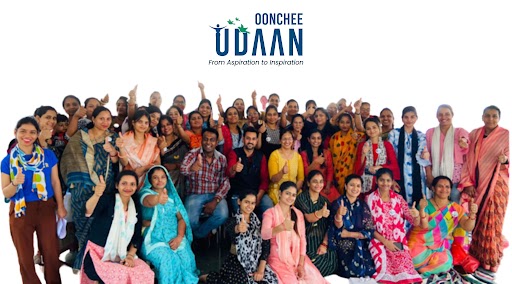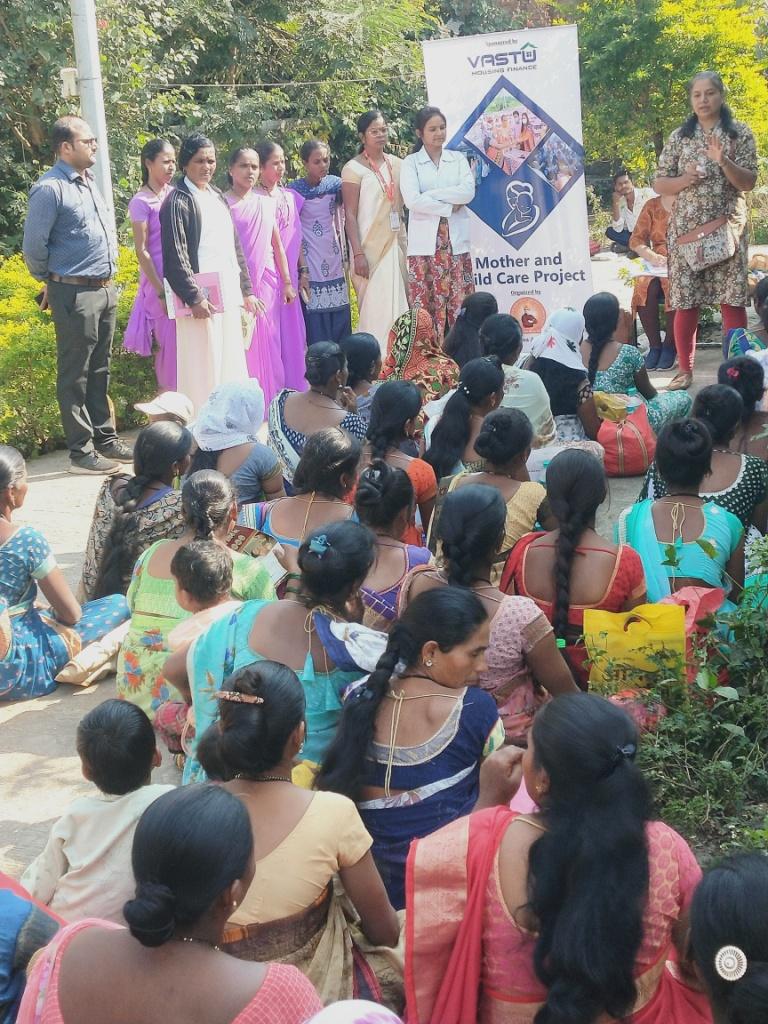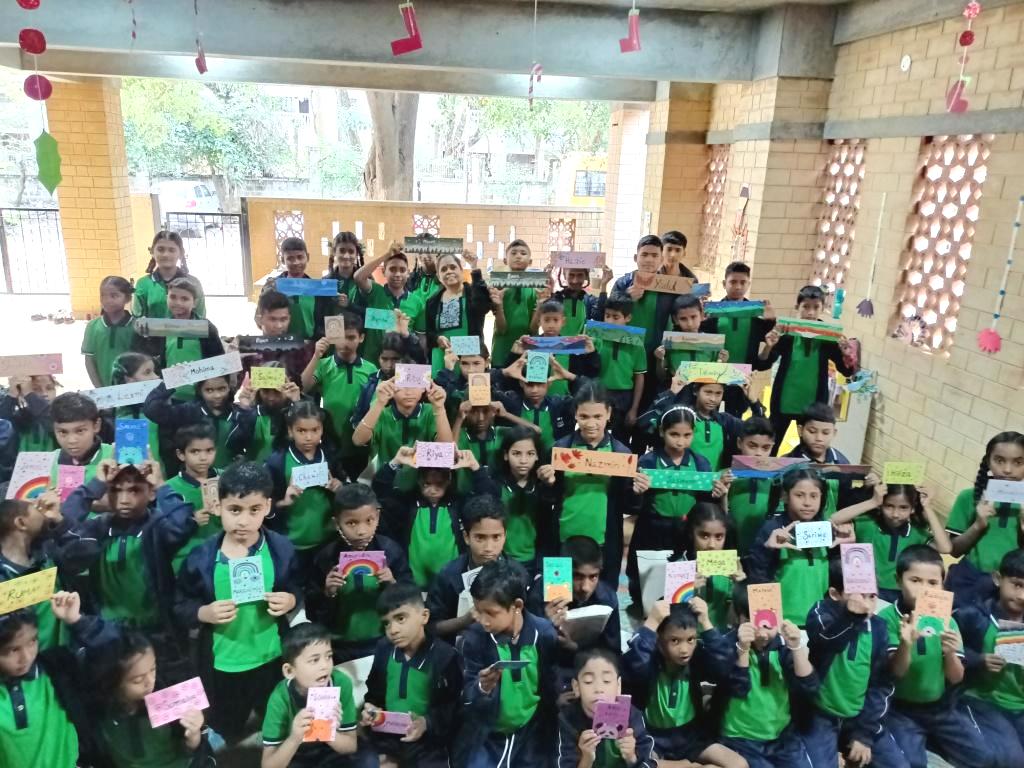Vastu Housing Finance is helping millions of Indians in realizing their dream of owning a home through easier processes and affordable financing. However, the company is more than just a financial institution. It is also reaching out to communities and initiating conscious, constructive transformations through well planned CSR initiatives. Ranging from empowering women micropreneurs through the 'Oonchee Udaan' program to enhancing healthcare for marginalized mothers and children via the 'Mother and Childcare Project,' their initiatives paint a vivid picture of their commitment to societal well-being. Their collaborations with organisations such as the All India Foundation of Deaf Women, Charlies Animal Rescue Centre (CARE), Swapaksh Learning Foundation and Suhrid Foundation reflect the broad scope of the causes and projects they support.
In this detailed interview with TheCSR Universe, Mr Sandeep Menon, Founder, Managing Director & Chief Executive Officer at Vastu Housing Finance, discusses their social vision and how it aligns with their business strategy to create sustainable value for all stakeholders. He takes us through their diverse initiatives, illuminating the path towards a more inclusive and compassionate society.
Scroll down for deeper insights:
Q. Vastu Housing Finance has a strong focus on CSR initiatives that create a positive impact in the communities where you operate. Could you please elaborate on the philosophy and values that drive your company's approach to corporate social responsibility?
A. We are dedicated to becoming a catalyst for change by reaching out to communities and making conscious and constructive changes that have a positive impact. Our CSR initiatives are designed to support and invest in nearby neighbourhoods and communities. The focus is on enhancing the communities' capacity to address their own basic economic and social upliftment needs by raising awareness and increasing their level of independence. Our company's operations and the development of value for our stakeholders are supported by solid governance practises that serve as the compass for our philosophy and principles.
 Q. One of your flagship CSR initiatives is the 'Oonchee Udaan' program, which empowers women micropreneurs through upskilling and financial empowerment. Could you provide the thought process behind this initiative and the impact it has had on the lives of these women?
Q. One of your flagship CSR initiatives is the 'Oonchee Udaan' program, which empowers women micropreneurs through upskilling and financial empowerment. Could you provide the thought process behind this initiative and the impact it has had on the lives of these women?
A. We created the 'Oonchee Udaan' programme with a vision to empower women micro-preneurs through skill enhancement and financial empowerment. When we launched this programme, we wanted to support female micro-entrepreneurs that would lead to a cascading influence on their communities and way of life. Through this programme, we provide women entrepreneurs with training, coaching, networking opportunities, as well as some financial support to assist them in growing their enterprises and gaining greater self-assurance and independence. This program has had a fantastic impact and up to now, we have empowered 575 women working in a variety of fields, such as fashion, food, handicrafts, and beauty towards financial freedom. The 'Oonchee Udaan' program has shown us that when provided with the right tools and opportunities, women can achieve remarkable feats and their success drives transformational change in the society.
Q. In FY23, Vastu Housing Finance has undertaken several key initiatives, such as the Mother and Childcare project. What is the impact that we want to create through this project?
 A. One of our CSR programmes, the ‘Mother and Childcare Project’, strives to enhance the health and well-being of women and children in the low-income areas where we operate. In order to give them access to high-quality nutritional products to tackle malnutrition among pregnant and lactating women, we collaborate with NGOs and health professionals. Through this project, we are seeking to positively impact India's mother and infant mortality rates, which are still high, especially among the society's most vulnerable groups. Additionally, this helps provide women with the knowledge to make educated decisions about their health.
A. One of our CSR programmes, the ‘Mother and Childcare Project’, strives to enhance the health and well-being of women and children in the low-income areas where we operate. In order to give them access to high-quality nutritional products to tackle malnutrition among pregnant and lactating women, we collaborate with NGOs and health professionals. Through this project, we are seeking to positively impact India's mother and infant mortality rates, which are still high, especially among the society's most vulnerable groups. Additionally, this helps provide women with the knowledge to make educated decisions about their health.
Q. You also run a Capacity Building Skill Development Training Programme. Could you share some insights into these projects and their outcomes? Who all are your implementation partners for this project?
A. This programme is designed to upskill youth in various domains to enable them to earn their livelihood through jobs that require skilled competencies in various domains. We believe that skill development is essential for improving the productivity and employability of all our stakeholders. The outcomes of this programme are manifold. It helps the beneficiaries improve their performance, career growth and job satisfaction while allowing them to increase their income. Ramakrishna Aarogya Sansthan is our partner in this endeavour.
Q. Vastu Housing Finance has partnered with the All India Foundation of Deaf Women to address the challenges faced by deaf women. Could you provide more information about the Skill Development Training Programmes and financial aid initiatives and how they have empowered deaf women?
A. The All India Foundation of Deaf Women (AIFDW) is a national-level organization working for deaf women to rehabilitate and upgrade their status in the society.
We have supported AIFDW in launching new courses in Mumbai, in order to provide skill development training programmes to deaf women in various fields, such as beauty, tailoring, handicrafts, digital, etc. These initiatives empower deaf women to become more self-reliant, confident and independent, through increased access to new opportunities, thereby helping them to increase their income and improve their quality of life.
Q. Could you elaborate on the partnerships with Charlies Animal Rescue Centre (CARE) and the CUPA Large Animal Rescue and Rehabilitation Centre (CUPA LARRC)? How has Vastu Housing Finance contributed to improving the lives of animals through these collaborations?
A. Our collaboration with the Charlies Animal Rescue Centre (CARE) helps to provide shelter and healthcare facilities for injured and abandoned animals, primarily dogs and cats, who need ongoing care and have special requirements. We additionally support CARE’s initiatives to rescue and treat injured stray animals. Through these collaborations, we have contributed to improving the lives of animals by providing them with care, comfort, and dignity.
Q. Your collaboration with Swapaksh Learning Foundation has enabled the provision of extracurricular activities for students. Could you share some examples of the impact these activities have had on the students' overall development and educational experiences?
 A. We are delighted to support Swapaksh Learning Foundation’s (SLF) vision of providing extracurricular activities for students from economically backward communities. These activities namely, music, dance, art, sports and yoga have had a positive impact on the students’ overall development and educational experiences by:
A. We are delighted to support Swapaksh Learning Foundation’s (SLF) vision of providing extracurricular activities for students from economically backward communities. These activities namely, music, dance, art, sports and yoga have had a positive impact on the students’ overall development and educational experiences by:
- Enhancing their creativity, self-expression, and confidence.
- Improving their physical, mental, and emotional health.
- Developing their skills, talents, and interests.
- Exposing them to new opportunities and possibilities
Through these activities, we have helped students to discover their potential, pursue their passions, and achieve their goals.
Q. You are working with Suhrid Foundation for the tribal community of Vikramgad. Can you highlight some specific projects and outcomes of this collaboration that have contributed to the community's better future?
A. Our collaboration with Suhrid Foundation (SF) is tuned in to uplift the economically weaker communities in the villages and tribal belts of Maharashtra. Some specific projects that have contributed to the community’s better future are:
- Setting up a primary healthcare medical centre in the Khandegar district, Maharashtra with a population of 1,000+ tribal residents. This medical centre helps the population of around 6 to 7 hamlets which cater to approximately 7,000+ tribals.
- Providing ambulance, setting up health check-up camps and building a health clinic in rural areas. These services bridge the gap in access to quality healthcare for the tribal communities.
- Supporting education, nutrition, and livelihood initiatives for the tribal children and women. These initiatives help to enhance the human capital and economic opportunities for the tribal communities.
Through these projects, we have contributed to improving the lives of the tribal communities by providing them with health, education, and empowerment.
Q. What was your CSR budget for FY 2022-23? What is the CSR budget for FY 2023-24?
A. Per our CSR policy, we are committed to spending at least 2% of our average net profits of the preceding three financial years on CSR activities.
Q. How do you ensure that the CSR initiatives align with Vastu Housing Finance's overall business strategy and contribute to the long-term sustainability of the company?
A. We work very closely with all our employees to create an impactful organization where we not only work towards the company’s long-term goals, but also work for the community around us. As an organization, we provide financial solutions for those seeking homeownership with a focus on the underserved segments of society, residing in rural and semi-urban areas, where there is a huge demand and supply gap. We provide them with financial literacy and guidance to help them access formal credit and improve their financial well-being. This is not only our core business, but also our social mission, as we believe that housing is a basic human right and a key driver of economic development. Our CSR initiatives are derived from our understanding of the communities in rural and semi-urban areas. We embrace innovation and adaptation in our CSR programs. This flexibility allows us to respond to emerging challenges and opportunities, ensuring that our CSR efforts remain relevant and effective over time. By aligning our CSR initiatives with our business strategy, we create value for all our stakeholders - customers, employees, investors, partners and society at large - and ensure the long-term sustainability of our company.
Q. In your opinion, what are the key factors for a successful CSR program? How do you measure the impact of these initiatives?
A. Focusing on select areas where we can create the most significant impact, drawing from our strengths, resources, and collaborations is the first step to ensure the success of CSR initiatives.
Leveraging the insights of expert partners like NGOs and communities through collaboration is key to strengthening the CSR journey.
This, supported by a clear and compelling mission that articulates the social purpose of the company and aligns with its core values, vision and strategy, lends quality and depth to the CSR programmes.
Q. What are the improvement areas you would like to suggest to your implementation partners so that impact measurement and reporting of the CSR projects becomes easier for your organisation?
A. We believe that there is always a scope of improvement in our endeavors and we must work closely with our implementation partners on the same. The following are some of the pointers provided to the implementation partners as part of the annual review:
- Arrive scientifically at a strong baseline survey
- Regular and close hand-holding of the community in the designed intervention
- Be cognizant of both, the direct as well as the indirect/higher-order impact
- Design the interventions in a manner where the community participates actively and has a high sense of ownership and accountability of the program
Q. What are your suggestions to policy makers towards making implementation of CSR programmes more effective and conducive?
A. We appreciate the efforts of policymakers who have introduced and implemented the CSR provisions in India and have enabled the corporate sector to contribute to the social and environmental development of the country.
Encouraging innovation and collaboration among companies and other stakeholders, such as NGOs, government agencies, academic institutions, and communities, can foster the development of new ideas.
Supporting these stakeholders in implementing these innovative ideas can significantly enhance the quality and impact of CSR projects. At the same time, foster a culture of social responsibility among the corporate sector.





 Q. One of your flagship CSR initiatives is the 'Oonchee Udaan' program, which empowers women micropreneurs through upskilling and financial empowerment. Could you provide the thought process behind this initiative and the impact it has had on the lives of these women?
Q. One of your flagship CSR initiatives is the 'Oonchee Udaan' program, which empowers women micropreneurs through upskilling and financial empowerment. Could you provide the thought process behind this initiative and the impact it has had on the lives of these women? A. One of our CSR programmes, the ‘Mother and Childcare Project’, strives to enhance the health and well-being of women and children in the low-income areas where we operate. In order to give them access to high-quality nutritional products to tackle malnutrition among pregnant and lactating women, we collaborate with NGOs and health professionals. Through this project, we are seeking to positively impact India's mother and infant mortality rates, which are still high, especially among the society's most vulnerable groups. Additionally, this helps provide women with the knowledge to make educated decisions about their health.
A. One of our CSR programmes, the ‘Mother and Childcare Project’, strives to enhance the health and well-being of women and children in the low-income areas where we operate. In order to give them access to high-quality nutritional products to tackle malnutrition among pregnant and lactating women, we collaborate with NGOs and health professionals. Through this project, we are seeking to positively impact India's mother and infant mortality rates, which are still high, especially among the society's most vulnerable groups. Additionally, this helps provide women with the knowledge to make educated decisions about their health. A. We are delighted to support Swapaksh Learning Foundation’s (SLF) vision of providing extracurricular activities for students from economically backward communities. These activities namely, music, dance, art, sports and yoga have had a positive impact on the students’ overall development and educational experiences by:
A. We are delighted to support Swapaksh Learning Foundation’s (SLF) vision of providing extracurricular activities for students from economically backward communities. These activities namely, music, dance, art, sports and yoga have had a positive impact on the students’ overall development and educational experiences by:












.jpg)



